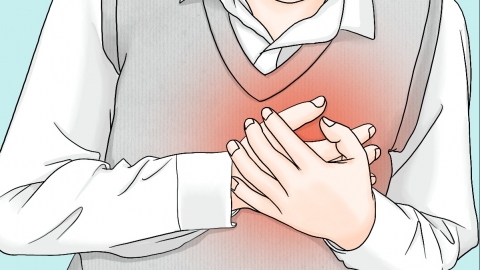Is purple lips a sign of heart disease?
Generally, purple lips may be caused by factors such as cold exposure, excessive exercise, asthma, chronic obstructive pulmonary disease (COPD), or possibly heart disease. If discomfort occurs, timely medical consultation is recommended. Detailed explanations are as follows:

1. Cold Exposure
In cold environments, peripheral blood vessels in the body constrict as a self-protective mechanism to reduce heat loss and maintain core body temperature. The blood vessels in the lips are no exception. After vasoconstriction, blood flow to the lips decreases, blood flow slows down, and oxygen released from hemoglobin to local tissues is relatively reduced, resulting in bluish-purple lips. It is important to keep warm in cold weather, wear masks and scarves when going out, and avoid prolonged exposure to low temperatures.
2. Excessive Exercise
During intense physical activity, the body's oxygen demand significantly increases, and the heart beats faster to meet oxygen requirements. If the intensity or duration of exercise is too great, cardiopulmonary function may temporarily fail to supply sufficient oxygen, leading to relatively reduced oxygen content in the blood and subsequently decreased oxygen levels in the lips, causing them to turn purple. It is important to plan exercise intensity and duration reasonably, warm up adequately before exercising, take appropriate breaks during activity, and gradually increase exercise volume.
3. Asthma
Asthma is usually related to genetic and environmental factors, such as exposure to allergens like pollen, dust mites, and animal dander. During an asthma attack, airway smooth muscles contract, airway mucosa becomes edematous, and secretions increase, leading to airway narrowing and impaired ventilation, which reduces oxygen intake into the lungs, resulting in inadequate blood oxygenation and purple lips. Symptoms such as wheezing and shortness of breath may also occur. Medications like Salbutamol Sulfate Tablets, Budesonide Inhalation Aerosol, and Montelukast Sodium Tablets can be used under a doctor's guidance for treatment.
4. Chronic Obstructive Pulmonary Disease
Chronic obstructive pulmonary disease is mainly caused by long-term smoking, air pollution, occupational dust, and exposure to chemical substances, leading to chronic inflammation of the airways and lung tissue, narrowing and obstruction of small airways, and gradual decline in pulmonary ventilation and gas exchange function. As the disease progresses, patients develop impaired gas exchange, insufficient oxygen intake, carbon dioxide retention, and reduced oxygen levels in the blood, which may cause purple lips. Symptoms such as sputum production and shortness of breath may also occur. Patients can follow medical advice to use medications such as Terbutaline Sulfate Tablets, Acetylcysteine Granules, and Ipratropium Bromide Aerosol to alleviate symptoms.
5. Heart Disease
Heart disease may be caused by single or combined effects of genetic factors, unhealthy lifestyle habits, infections, mental stress, and environmental factors. It may lead to reduced cardiac pumping function or abnormal circulation, causing systemic hypoxia. The lips have rich capillaries, and when blood oxygen levels decrease, the lips may appear purple due to hypoxia. Patients may also experience symptoms such as chest pain and palpitations. Under a doctor's recommendation, patients can use medications such as Captopril Tablets, Digoxin Tablets, and Furosemide Tablets for treatment.
In daily life, patients should dress appropriately for warmth, drink warm water, and improve the condition of purple lips. Additionally, if any physical discomfort is noticed, prompt medical attention at a hospital is advised.







